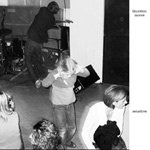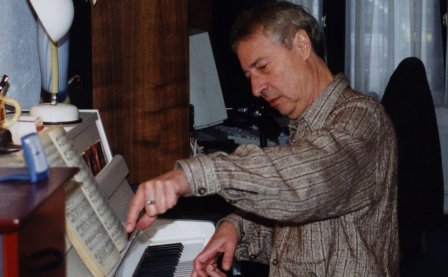At 49 years old, Thurston Moore is still as feisty as ever, and for this, I congratulate him. Sensitive/Lethal is his deepest noise offering to date, and while still difficult for a broad audience, this is a record that demonstrates not only a mastery of guitar noise, but a complete picture of the noise aficionado locked away in the basement, keeping the neighbors awake all night long.
As a standalone record, Sensitive/Lethal doesn’t digest too easily, which either makes it rewarding or impenetrable, depending on your tastes. The concept, to simulate a basement noise freakout, is deceptively complicated. Moore crunches acoustic guitars into “Sensitive,” the relatively sonorous front side that sounds like it was recorded through the kitchen floor. “Lonesome,” the intermediary piece, is the most concise of the three, using subtle frequency modulations to bridge the two longer compositions.
After the 26 minutes of the first two tracks -- just when the book is getting good and you’re thinking “Hmmm, noise music can be really relaxing” -- come the opening screeches of “Lethal.” A high-pitched oscillator makes short work of Moore’s now trivial guitar noise and sounds like a chirping cricket on cocaine. “Lethal,” while titled accordingly, is also startlingly beautiful in its abrasive undulations between pulsing pulps of saw waves and ascending sound-mass clusters. Moore’s hand is ever-present, playing three-card monte with the sounds to the effect that nearly every texture’s entrance and exit are hidden. This is especially impressive considering the hard pans of the electronic noises on the left and guitar work on the right. This separation makes it seem like two tracks at once, doubling the pleasure and pain.
To answer the question that the liner notes ask me: Yes Thurston, I’d love to come over and “help you alphabeticize [sic] your noise tapes.” This is a minimally ironic record emblematic of a sound and style with which Moore is highly involved, and most Sonic Youth fans, no matter their tolerance for "noise," should be able to appreciate that.
More about: Thurston Moore




